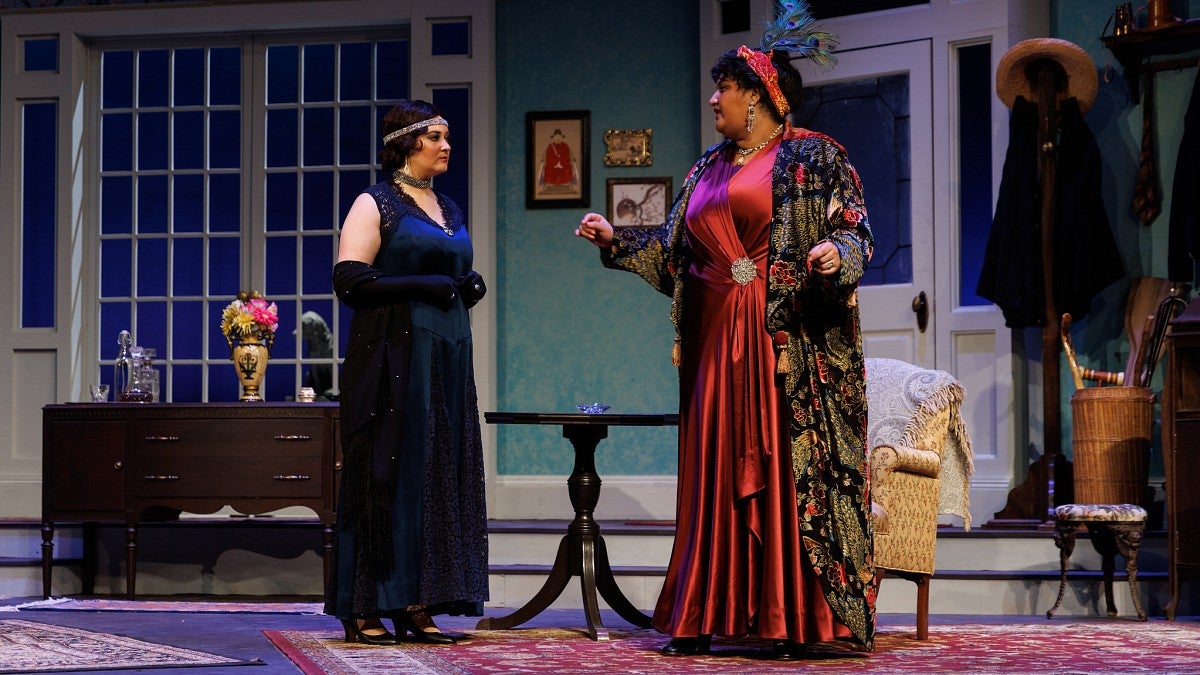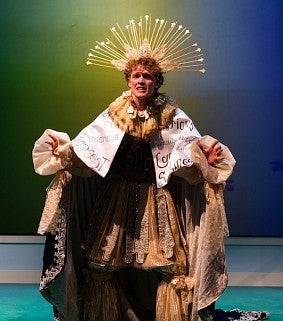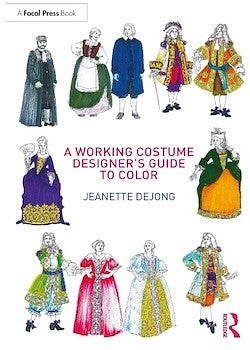
July 8, 2024 - 5:00pm
In the world of theatre arts, costume design has the power to transform a production. Jeanette deJong , associate professor of costume design, history and technology in the College of Arts and Sciences at the University of Oregon, brings decades of experience to this craft. As an expert in costume design and with a passion for educating costume designers, she was inspired to write a set of books for aspiring and seasoned professionals.

Since graduating with a master in fine arts degree in theatre from the UO in 1984, deJong has worked all over the country in a variety of costume design positions, including instructor, freelancer, consultant, costume shop manager and now associate professor.
“I would say that Jeanette's teaching style is like a body of water,” said Emma-Jade Bui ’26, an advertising and theatre arts major. “It flows by, but also shapes its surroundings. She's very flexible and adapts to our needs while still following a structure to help us build great sewing habits.”
Bui added, “I've learned a lot from Jeanette. One thing I'll take with me everywhere is her motto, ‘Make it look pretty.’”
deJong's enthusiasm for costume design shines through as she discusses her motivation for writing her books, “A Working Costume Designer’s Guide to Color” (2021), “A Working Costume Designer’s Guide to Fit” (2023), and “A Working Costume Designer’s Guide to Period Style" (2025). These publications are a way to fill a gap in the market, what she said is a lack of comprehensive guides tailored specifically to assist young professionals, recent graduates and even seasoned practitioners.
Guiding future costume designers
Drawing from her journey as a practicing costume designer, her books offer readers the ultimate shortcut — a treasure trove of methods and techniques honed through years of creative work. Her approach is not merely theoretical but grounded in real-world application.

Her books are meant to be companions for anyone seeking to excel in costume design. They offer the tools and insights needed to go beyond aesthetics and become a conduit for storytelling and emotional resonance. She also emphasizes the importance of considering factors such as skin tone, body size and cultural background in costume selection.
“Costumes in theatre help clarify the characters, who they are individually, how they relate to each other, how they transition from one state to another,” she said. “There is a lot of different communication happening with costume.”
deJong’s books as guidebooks are a natural extension of her teaching practice, which includes creating guides for her courses. Recognizing the value of structured, step-by-step instructions, she began documenting procedures for her students to facilitate their learning process better. She intended to not only supplement classroom instruction but also empower students to learn independently and find ways to push through when they get stuck.
“I am so grateful to be studying under Jeanette,” said Ollie Twitchell, class of ’26. “She is such a kind and supportive professor. Her coursework is thorough and rigorous, covering a range of topics in each class, but she is flexible with her students to make sure we all are able to succeed in her courses and in life. She takes time to connect with all of her students.”
Costume design relies on collaboration
In discussing her books, deJong also touches upon the collaborative nature of theatre production. Costume design, she emphasizes, is not an isolated endeavor but an integral part of a larger creative process. From collaborating with directors and actors to coordinating with lighting and set designers, costume designers play a crucial role in bringing stories to life on stage.
“I just think it's so exciting to be able to help build a world. I like that it's finite and that it disappears after a little while because it's also just always a snapshot of the time and place,” deJong said. “I don't know that I'd want to have a movie that would stay forever because I like the experimentation that you can do on stage. Sometimes it works, sometimes it doesn't. I love being in the audience and seeing how the audience reacts, which you get in theater.”
—By Jenny Brooks, College of Arts and Sciences
